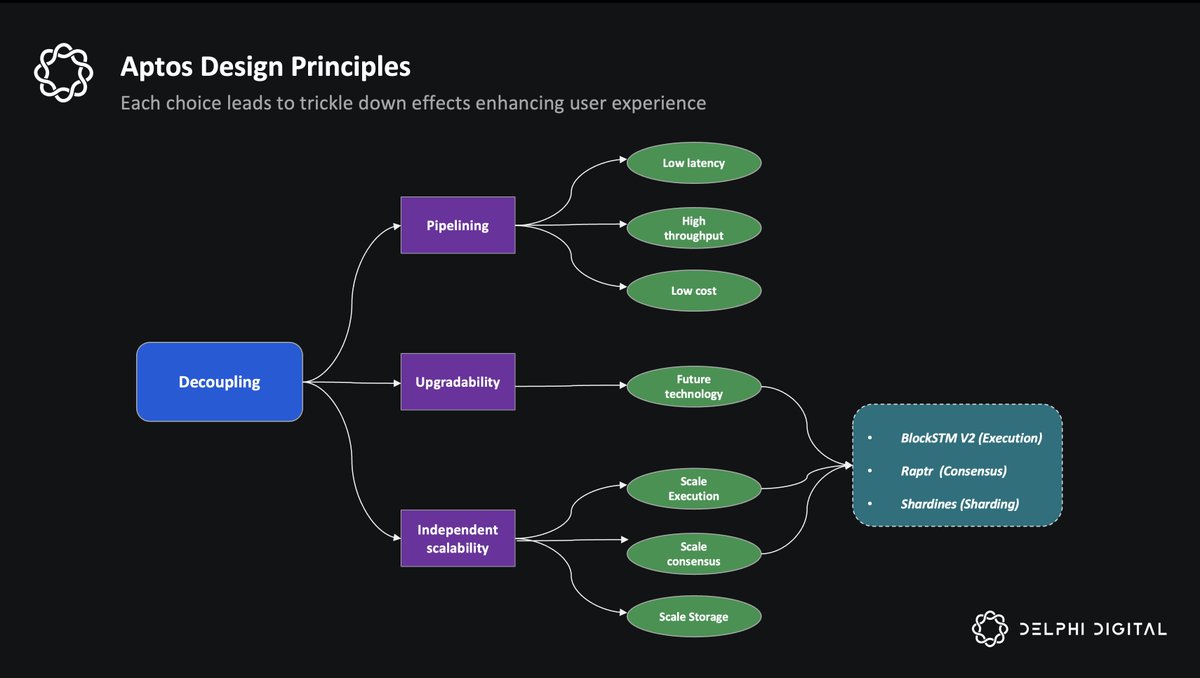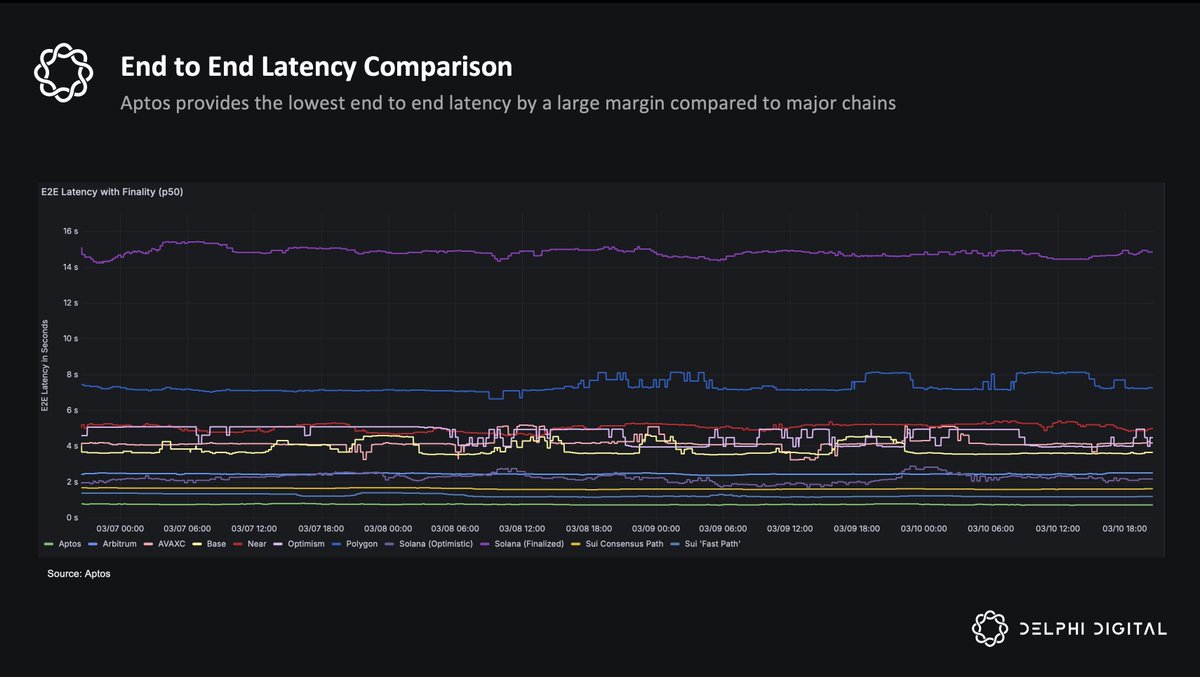How Aptos is Rethinking Scalability & Performance
Blockchain performance is usually judged by one metric: transactions per second (TPS).
But TPS doesn't guarantee real world performance at scale. Performance isn't about raw throughput. It's about how well the chain can perform under load.
This is where @Aptos stands apart.
Rethinking Resource Efficiency
Most blockchains today optimize only transaction execution but overlook hardware utilization across other critical stages like consensus, storage, and certification. This leaves valuable hardware resources sitting idle that could decrease performance while driving up costs.
The Aptos approach recognizes that throughput and scalability depend less on raw hardware power and more on how efficiently different components work together. By breaking transaction stages and re-organizing them into pipelines, Aptos can increase throughput, lower transaction costs, and reduce validator requirements.
Consensus
Aptos uses AptosBFTv4 for its consensus mechanism.
AptosBFT v4 reduces latency by using fewer communication rounds compared to most consensus protocols. This is possible because:
• Pipelined Consensus allows multiple blocks to be processed simultaneously to increase throughput.
• Metadata-based consensus reduces data transfer between validators by exchanging only compact transaction summaries (metadata) instead of full transaction details.
• Reputation-based leader elections prioritize validators based on stake weight and past performance to speed up confirmation times.
• Direct peer-to-peer communication lets validators communicate directly to minimize network delays.
To complement this, Aptos uses a Quorum Store architecture that allows consensus to scale linearly with additional validators, turning a typical bottleneck into an opportunity for horizontal scaling.
Execution (Block-STM)
Aptos’s parallel execution engine Block-STM (Software Transactional Memory) automatically resolves conflicts at runtime, making execution more efficient.
Block-STM achieves parallel execution by storing multiple versions of the same data, allowing transactions to run simultaneously without getting in each other’s way. Block-STM enables up to 170K TPS on single-node setups.
The upcoming Block-STM v2 aims to scale this to 256-core CPUs, allowing Aptos to increase throughput and manage rapid growth.
Storage Optimization
Aptos optimizes storage by committing state updates to memory first, then batching and writing them to disks in larger, less frequent operations. By doing this, Aptos reduces the frequency of disk operations to reduce latency and maximize CPU utilization.
Upcoming "Tiered Storage" innovations will optimize storage even further by categorizing data based on how frequently it’s accessed. Commonly used data stays in faster storage while less used data is moved to slower storage layers.
Ledger Certification
Aptos uses a two-stage certification approach to ensure trustless state verification without the usual heavy latency penalties.
In the first stage, validators certify recent state updates by hashing only incremental state changes to improve speed. In the second stage, Aptos periodically creates comprehensive snapshots of the entire blockchain state.
This structure keeps transactions verifiably secure yet fast.
Zaptos: Reaching Theoretical Latency Limits
Zaptos is Aptos’ latest innovation designed to minimize transaction latency.
Instead of sequential transactions, Zaptos simultaneously overlaps multiple blockchain stages like consensus, execution, storage, and certification.
This potentially cuts end-to-end transaction latency by 40% (to sub-second confirmations) even under intense loads.
Shardines: Preparing for 1M TPS
Shardines is Aptos’ upcoming execution upgrade designed to scale transaction throughput.
By splitting transactions into smaller groups (shards) and processing them simultaneously across multiple machines, Shardines allow execution to scale horizontally, potentially targeting up to 1 million TPS for non-conflicting workloads.
This means Aptos can effortlessly handle viral applications and unpredictable traffic surges, where other chains have historically faltered.
By tackling scalability across every stage, Aptos aims to deliver a blockchain that stays fast under any condition.
What’s Aptos’ differentiator?
For contending blockchains, performance and fast confirmations are not enough. Solana, MegaETH, Sui, and Monad all provide similar throughput and latency but speed is no longer a structural advantage. It's table stakes.
With DeFi driving product market fit, chains must also deliver superior DevEx, security, compliance, and seamless UX to become the preferred platforms for robust and liquid internet capital markets.




免责声明:本文章仅代表作者个人观点,不代表本平台的立场和观点。本文章仅供信息分享,不构成对任何人的任何投资建议。用户与作者之间的任何争议,与本平台无关。如网页中刊载的文章或图片涉及侵权,请提供相关的权利证明和身份证明发送邮件到support@aicoin.com,本平台相关工作人员将会进行核查。




